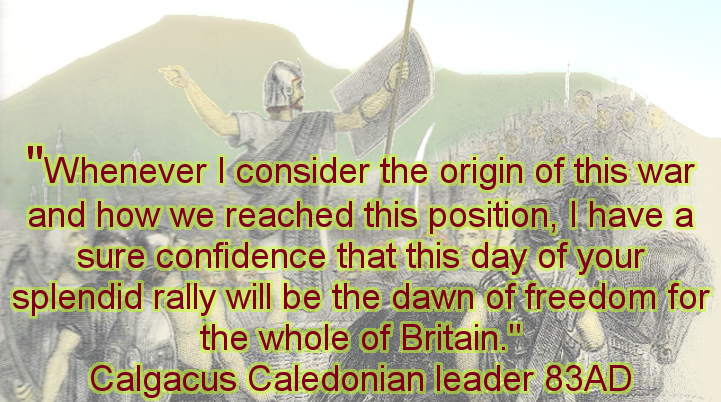Nearly two decades after I first highlighted the fact that there is no evidence that the Britons were Celts, it seems that British archaeologists and historians have finally accepted this fact. However, you can be forgiven for not having heard it.

For a long time those people like the Caledonians above, in the North and West of Britain have been described as Celts. There is no evidence to support this identification and it now appears that the archaeological and historical community are accepting this
Indeed, I only heard the news by chance at 2pm this morning – not by way of any grandiose press release – but in a snippet I heard by pure fluke in a BBC program on “Invasions”. Call me a sceptic but putting this out in in a program that you’ve got to be a serious historical nerd to watch, when the Irish border and Brexit is filling all the newspapers must be a good way to get out this news with the least possible furore. A good year to bury bad news?
What does this all mean?
The simple fact, is that we Britons (who have for generations been taught that we used to be a Celtic race until the Anglo Saxon invasion and supposed genocide of the former “Celtic” peoples of Britain) were never Celts anyway. And that is about all it means.
Instead the term “Celt” rightly belongs to a tribal grouping of just one part of the nation of Gauls in France. And we have this on no lesser authority than Caesar himself: the conqueror of the Gauls.
However, just because you change the name of a football team doesn’t change the team, nor any of the basic stats. And likewise, just because generations of historians and archaeologists have been using the wrong tribal name to describe us Britons, hardly anything now changes about our history.
The Welsh (formerly thought to be the remnants of Celts in Britain) are still Welsh. They still have a distinct language and culture. They are still linguistically related to the Cornish, Bretons and Cumbrians. Welsh and Gaelic as languages are still more similar than for example Welsh and German, so they can be considered a different language group. In one sense, it is nothing more than a name change, a rebranding of our identity: We were never Celts – just plain ancient Britons.
But in another sense it is perhaps the most momentous change in British history we’ve seen in many generations. And … you’ve got to wonder how such a glaringly obvious mistake came to be relied on by so many generations of academics.
The answer is simple: such a fundamental thing wasn’t something anyone was researching. The matter was settled hundreds of years ago, and unless it was for awkward people like me – who don’t rely on research grants to decide what we resarch, there would have been no need to re-examine the matter.
A good year to bury bad news?
I can’t help wondering whether the timing of this news is entirely coincidental. In archaeological terms it’s simply a name change. But on the basis of a long held belief that the Scots and Irish are “Celtic” a whole generation of politicians, artists, writers & even footballers and created a “Celtic” identity that is now without foundation. I can’t see them being too pleased.
Just now, the papers are obsessed by Brexit and particularly the Irish ones are totally focussed on the issue of the Irish-Northern Ireland border. It is indeed a good year to bury the Celtic myth.
Background
Why was I looking at the Celts nearly two decades ago? The answer was that I was not. I had no interest in the Celts. Instead I was interested in the development of early Christianity in Britain and I was getting extremely confused with references to the “Celtic Church”.
The problem was that evidence now shows that Christianity has been present in Britain from a very early period but in England. It was therefore quite clear that there must have been a church in Roman Britain – the part that wasn’t “Celtic” and there is no(?) evidence for any “Celtic” church at this period. I just couldn’t understand whether this “Celtic church” was the same as the one in Roman Britain or whether there may have been two different churches.
And in trying to understand whether there were two early churches, I found I had to understand what was and wasn’t meant by “Celtic”. And so as I traced back the evidence on the British “Celts” and I repeatedly found no evidential foundation for what was being said. Indeed, I then started reading all the available Roman texts to find out what they were saying about the Celts. And none of them referred to Celts in Britain. None of it pointed to the Celts being in Britain.
After thoroughly checking, I eventually raised the subject on the Britarch forum, and got nothing but howls of incredulity from every reply. However, when did that ever stop me?
And that is the story so far, but it will not be the end of the matter. In nearly two decades of quiet research, do you really think I have not developed my ideas further?

